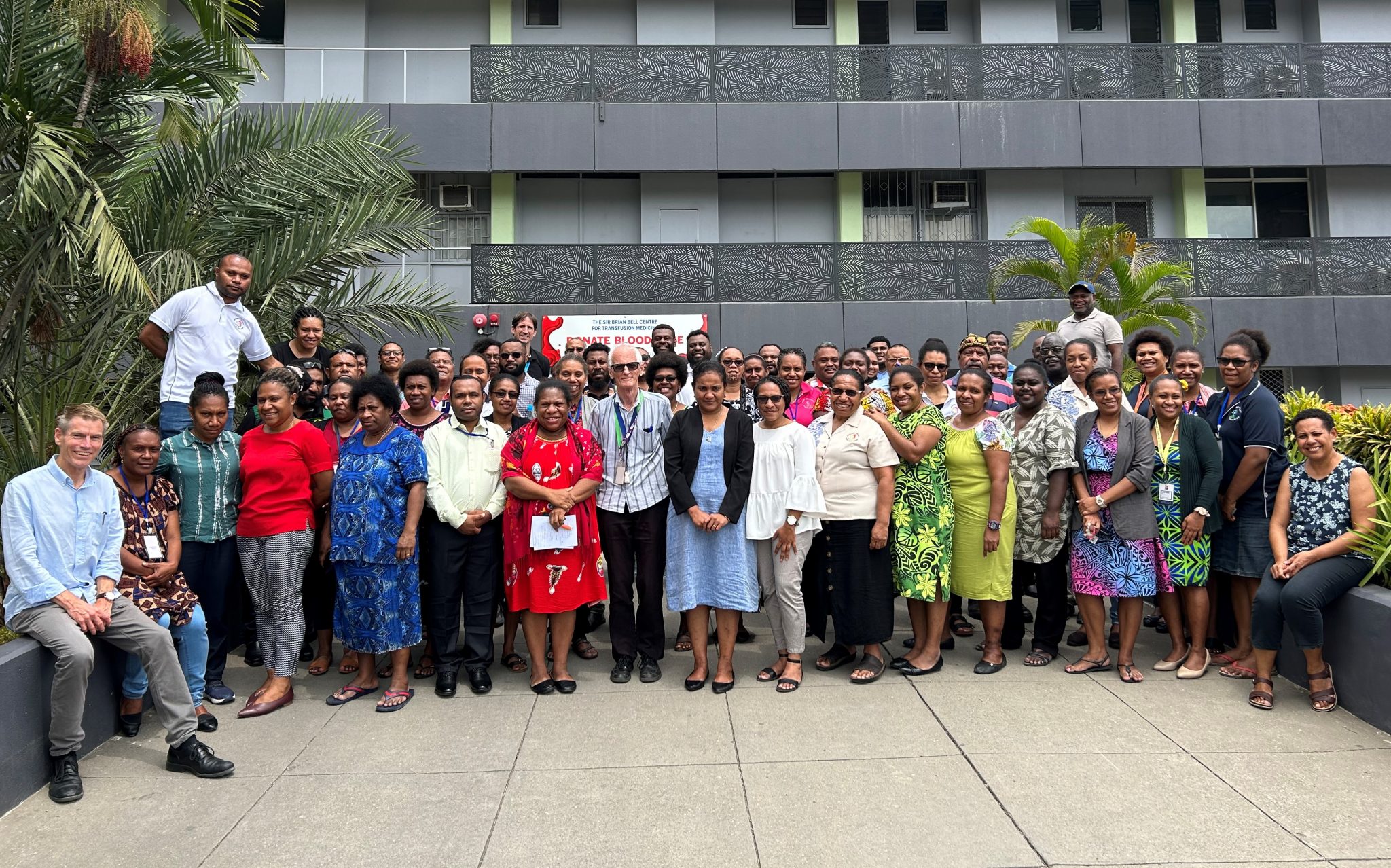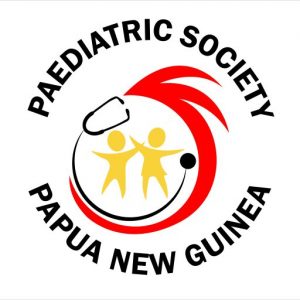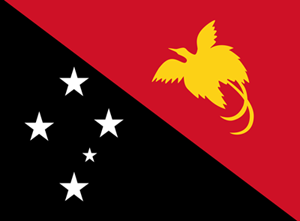
The Paediatric Society of Papua New Guinea was established in the 1970s. We have grown from 10-20 members in the 1980s and 1990s to more than 80 currently. The Society membership is mostly paediatricians and post-graduate paediatric trainees, and we welcome paediatric nurses, health extension officers, and other child health workers also. The Paediatric Society has close links to the National Department of Health and the School of Medicine and Health Sciences at the University of PNG. Paediatric colleagues in other Pacific Island countries, particularly Solomon Islands and Vanuatu are also Society members.
The roles of the Paediatric Society include the following:
- To develop and maintain standards of paediatric clinical care and public health, according to the latest evidence. The Society is the custodian of clinical guidelines, and ensures they are kept up to date.
- To provide guidance to the Department of Health on all aspects of child and adolescent health, including clinical practice, quality and safety and outcomes, social, environmental and preventative health, vaccine-preventable diseases, and emerging or neglected child and adolescent health issues. The advice is based on scientific evidence and professional experience and wisdom.
- To provide advice to the community on important aspects of child health, for example through involvement in public awareness about breastfeeding, immunization, nutrition and school attendance.
- To work closely with training institutions to provide input on health training curricula, so that nursing, under-graduate medical training and courses for other health workers reflect the national child and adolescent health policies and guidelines.
- To develop continuing professional development for paediatricians and child health nurses to ensure the maintenance of professional skills, knowledge and standards
- To be a collegiate society providing professional and peer support to members
This web-site contains information relevant to child health in PNG and other Pacific Island countries.

